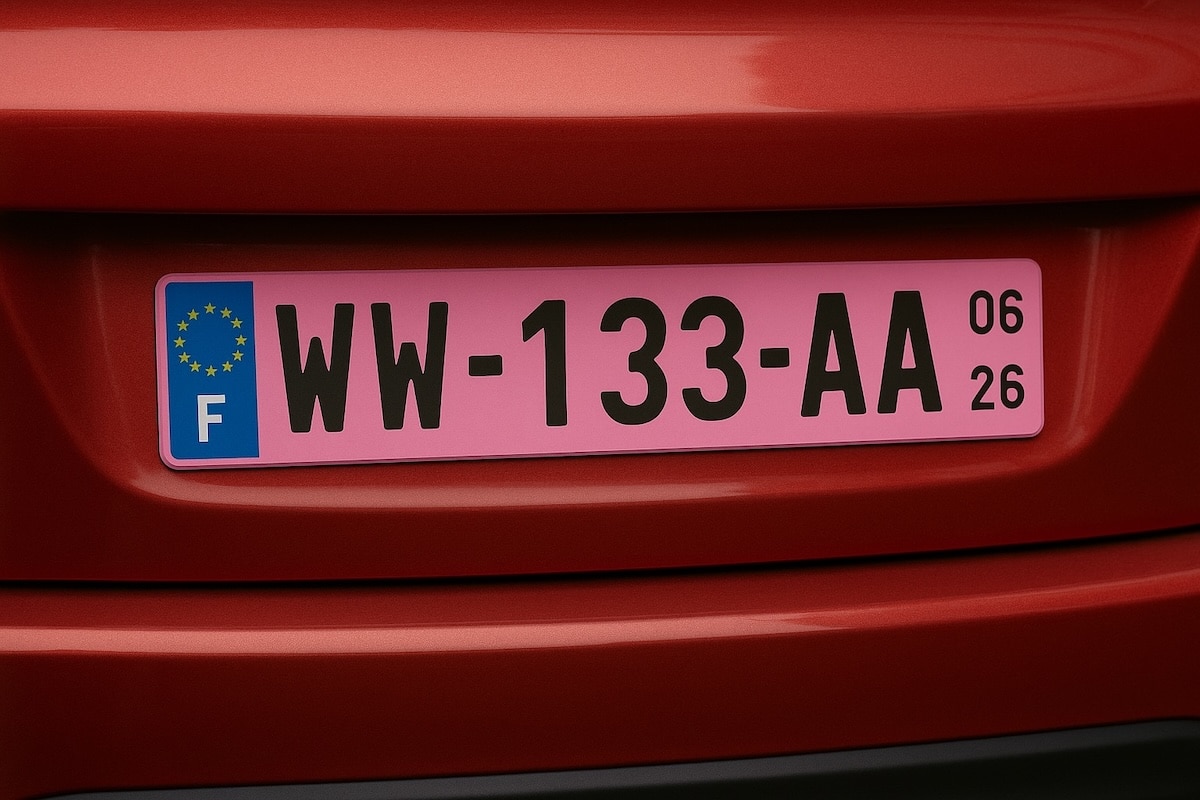Pink License Plates: Shame as a Tool for Regulation

To more easily identify a certain type of cars on the road, pink license plates will appear in 2026.
Starting at the beginning of 2026, France will color its roads with an unexpected hue: pink. No, this is not a campaign against breast cancer or for more chromatic diversity in the automotive landscape, but rather an administrative measure.
The temporary license plates, those beginning with the famous “WW”, will abandon their simple white background for a bright pink, difficult to ignore. Officially, the goal is to make these plates more easily identifiable. Unofficially, it could almost be seen as a subtle attempt to make rule-breakers blush.
You might be interestedin this article:
Seeking discretion… and legality?
Until now, temporary plates, intended for new imported vehicles or those awaiting permanent registration, blended perfectly with standard plates. Result: it was difficult for a police officer or a radar to distinguish a legally compliant vehicle from another just passing through.
Some drivers took advantage of this to prolong their journey well beyond the authorized period. Additionally, another problem arose: the limited number of “WW” combinations. Since these series are recycled fairly quickly, administrative confusions have led to fines being sent to new owners for infractions committed by previous ones.
The solution chosen by the French government? Pink. A deliberately eye-catching color, unprecedented on European roads, immediately recognizable. The official goal: enable law enforcement and control systems to spot a temporary registration at a glance, especially since the expiration date will now be indicated. The implied goal: make the “WW” less glamorous. Because it’s hard to imagine a motorist proudly sporting a bright pink plate in front of everyone’s eyes.
Don’t thugs dislike pink?
This color choice, both pragmatic and symbolic, clearly reflects the spirit of the measure. Fluorescent pink is not just an aesthetic whim: it’s a visibility tool, but also a social marker. It almost publicly signals that the vehicle is not yet “legal”. And, in a way, it puts a label on those who play with the margins of the system. Pink plates are the end of bureaucratic camouflage: “drive temporarily, but drive visibly,” in short.
This page is translated from the original post "Plaque d’immatriculation rose : la honte comme outil de régulation" in French.
We also suggestthese articles:
Also read





